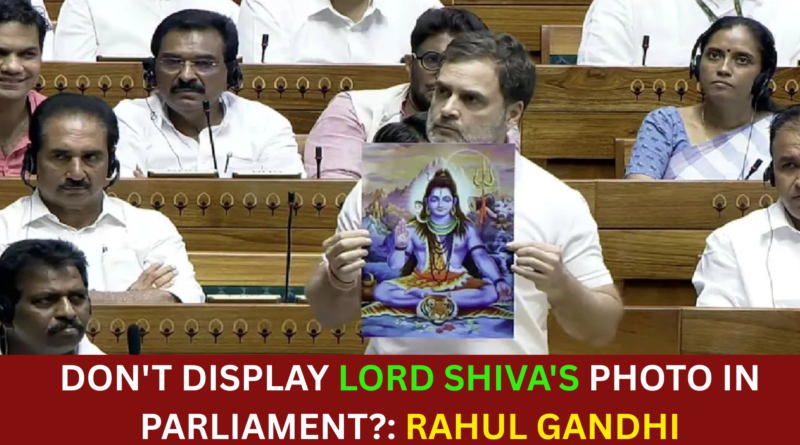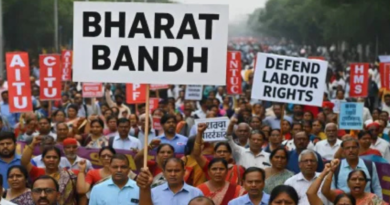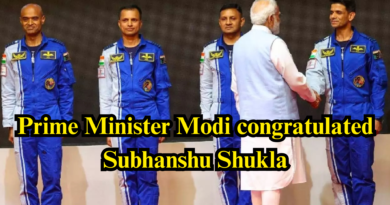DON’T DISPLAY LORD SHIVA’S PHOTO IN PARLIAMENT?: RAHUL GANDHI
In a bold and controversial statement during a heated parliamentary session, Congress leader Rahul Gandhi questioned the display of Lord Shiva’s image within the Indian Parliament. His comment has drawn sharp reactions across party lines, with BJP leaders accusing him of disrespecting Indian culture, while opposition allies defend his remarks as a call for secular values in democratic institutions.
Rahul Gandhi raised the issue while addressing what he described as a growing attempt to “weaponize religion for political gain.” Referring to a recent event where images of deities were installed in government buildings and shared by ministers on social media, Gandhi rhetorically asked, “Will we now place Lord Shiva’s photo in Parliament? Will every god be installed in the House of the people?” He clarified that his concern was not with the religion itself, but with the politicization of religious icons in legislative spaces.
This statement sparked an uproar in the House, with BJP MPs demanding an immediate apology. Union Ministers accused Gandhi of insulting Hindu sentiments and engaging in what they called “selective secularism.” They argued that India’s identity is deeply tied to its spiritual traditions and that recognizing them in the nation’s institutions is a reflection of cultural pride, not religious imposition.
However, Rahul Gandhi stood firm, stating that Parliament is a temple of democracy, not of any specific religion. “If you bring in Lord Shiva, then logically you must bring in Prophet Muhammad’s symbols, Jesus Christ’s statues, and images from every faith,” he asserted. “Is that the direction we want to take in a secular nation?” His comments resonated with several members of civil society and liberal groups who worry about the increasing blurring of lines between state and religion.
Political analysts noted that Rahul Gandhi’s statement taps into a broader ideological struggle over India’s secular foundations. Since 2014, there has been a rising trend of using religious symbolism in statecraft, often led by the BJP. Gandhi’s remarks can be seen as a direct challenge to this narrative, aiming to reclaim the constitutional promise of religious neutrality in public institutions.
Social media erupted with both support and outrage. Hashtags like #SecularIndia and #InsultToShiva trended simultaneously, revealing the deeply polarized nature of the debate. While some users praised Gandhi for speaking up against majoritarianism, others criticized him for creating unnecessary controversy around religious sentiments.
Amid the furore, the Congress party clarified that Rahul Gandhi is a devout follower of Lord Shiva, frequently undertaking Kailash Mansarovar pilgrimages. “He respects all religions, but he believes that religious representation should not dominate the democratic space,” a party spokesperson said. They reiterated that his concerns were aimed at protecting the sanctity of democratic institutions from being overtaken by religious narratives.




